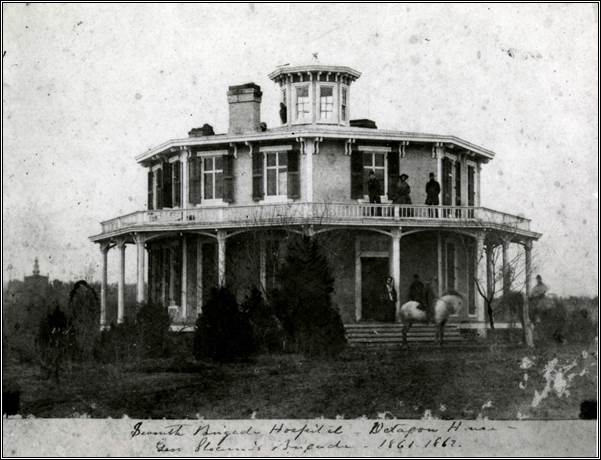From 1856 to 1866 an octagonal house stood on the grounds of the First Baptist Church at 2932 King Street. For its short existence, the unique house played a remarkable role during a turbulent time in Alexandria’s history. Built in 1856 by Sarah W. Hall, a cultivated and refined New Yorker, who relocated her family to the Alexandria area, the house’s design and concrete construction were unusual in Northern Virginia.
After the outbreak of the Civil War in the spring of 1861, the house’s location along Leesburg Turnpike and in the vicinity of several Union Army fortifications led to its use as a headquarters by several Union regiments and as a regimental hospital. In particular, the Octagon House was associated with U.S. Brigadier General John Sedgwick (1813-1864) and Amy Morris Bradley (1823-1904), a remarkable nurse, whose abilities led her to the United States Sanitary Commission where she rose through the ranks to become Special Relief Agent. In that capacity she transformed makeshift army hospitals from unsanitary camps into clean, efficiently-run hospitals.
The house burned to the ground in 1866. As all above-ground physical traces of it disappeared, the house’s history all but faded as well. Julia Claypool’s narrative will weave together the fascinating history and people associated with an all but forgotten landmark.
Ms. Claypool, a historian and cultural resources planner, surveys buildings and writes architectural narratives and prepares historical and architectural documentation. She is the former Historic Site Administrator and Director of the Carlyle House Historic Park in Alexandria.
The lecture is sponsored by Friends of Alexandria Archaeology (FOAA) in celebration of Virginia Archaeology Month. Though free and open to the public, reservations are required: archaeology@alexandriava.gov or 703.746.4399


